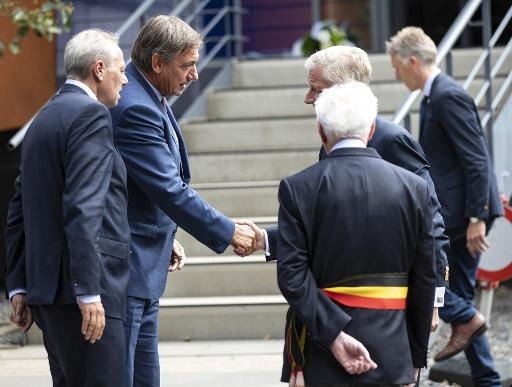Following the death of a policeman in the Fagnes zone during the night of Saturday through to Sunday in Spa, a sentiment appears to be rallying the various police trade unions. There is a certain bitterness or perplexity faced with the contrast between the condolences expressed on site, from Sunday, by the Minister for the Interior, Jan Jambon, and the action of the government on the political front, around the role of the police.
Eddy Quaino believes, “The government lacks the philosophy to acknowledge the role of the police.” He is a standing policeman permanently working within the police arm of the General Federation of Belgian Labour, who was contacted on Monday. Within this context he admits, “I have difficulty understanding a Minister of the Interior welcoming the police action.” The highly relevant example, which still sticks in his throat is that of the disciplinary status of police.
At the end of June, based upon the proposals of the Minister for Security and the Interior, Jan Jambon, and the Minister of Justice, Koen Geens, the Cabinet approved draft legislation in this sphere, concerning all members of the police service and the Inspectorate General. It aims to simplify the regime of disciplinary sanctions.
In reality, in the words of Eddy Quaino, “It is a question of removing the power of politicians to place it in the hands of the Commanding Officer of the area or the Chief Commissioner. Moreover the system is abolishing a small penalty, which will more quickly turn into significant penalties, for example deductions from salary.” In other words, a policeman who has erred may more easily be penalized, by his Commanding Officer if he is in the local police, a penalty which will hit his wallet. The draft legislation only provides for five types of penalty, including a single one which is “unexacting”, the reprimand. As for the others, we speak of “deduction from salary”, “downgrading from the salary scale” (for six years), “compulsory retirement” and “dismissal”. Eddy Quaino concludes, “If this is how we thank the police...it is unbearable for us.”
The draft legislation is subject to trade union negotiation before forwarding it to the Cabinet for its opinion. A negotiation meeting is soon due to gather representatives of Minister Jambon and recognized police trade unions. It will take place on September 5th, state the members of the police arm of the General Federation of Belgian Labour.
The Brussels Times

